Arts & Entertainment
Tony Awards 2019: ‘Boys in the Band,’ ‘The Cher Show’ pick up wins
‘Hadestown’ leads with triumphs for eight categories
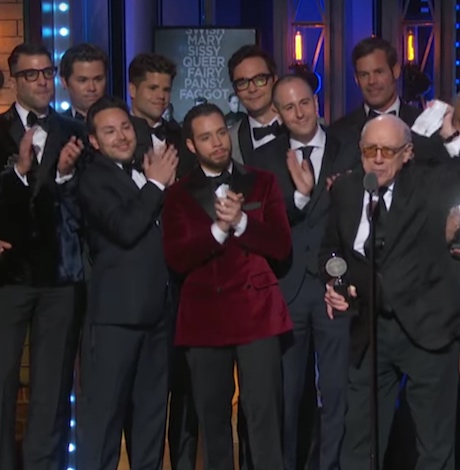
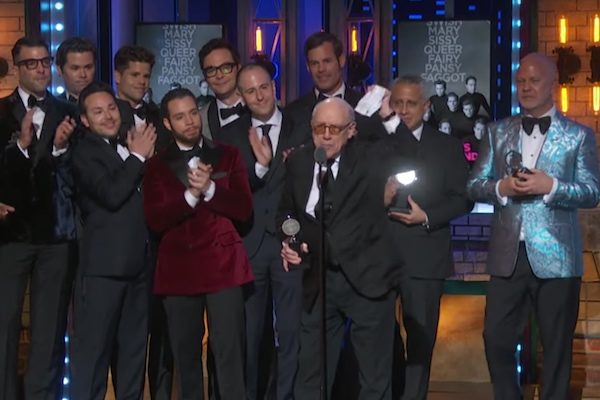
“The Boys in the Band” received the award for Best Revival of a Play at the 73rd Annual Tony Awards at Radio City Music Hall on Sunday making 83-year-old playwright Mart Crowley the oldest playwright to win the award.
The play tells the story of a group of gay friends who gather together to celebrate a friend’s birthday in pre-Stonewall New York City. It opened off-Broadway in 1968. For the play’s 50th anniversary, the production was revived in 2018 with co-producer Ryan Murphy and director Joe Mantello.
The openly gay revival cast included Matt Bomer, Jim Parsons, Zachary Quinto, Andrew Rannells, Charlie Carver, Robin de Jesús, Brian Hutchison, Tuc Watkins and Michael Benjamin Washington.
Murphy is also planning a film adaptation for Netflix featuring the Broadway cast.
Crowley dedicated the award to the original cast in his acceptance speech.
“I’d like to dedicate the award to the original cast of nine brave men, who did not listen to their agents when they were told that their careers would be finished if they did this play,” Crowley said. “They did it, and here I am.”
“Hadestown” was the big winner of the evening, which was hosted by James Corden, coming in with eight wins.
Bisexual actress Ali Stoker, also known for her work on “The Glee Project,” won Best Featured Actress in a Musical for portraying Ado Annie in the “Oklahoma!” revival.
Stephanie J. Block won Best Actress in a Musical for playing Cher in “The Cher Show.” Legendary costume designer Bob Mackie and longtime Cher collaborator also won Best Costume Design in a Musical for “The Cher Show.” Cher celebrated the multiple wins with an emotional tweet.
I CANNOT STOP JUMPING, CRYING,LAUGHING,….I FEEL LIKE I WON AN AWARD‼️
— Cher (@cher) June 10, 2019
NOT EVEN SURE IF I CAN USE EMOJIS.
STEPHANIE,BESIDES ME…YOU
ARE THE“ BEST ME”?
BOB I LOVED YOU THE MOMENT I SAW YOU❤️
BEST ACTRESS IN MUSICAL =
STEPHANIE J BLOCK
BEST COSTUME DESIGN
BOB MACKIE pic.twitter.com/Lsha8FhKQX
Gay winners continued to dominate the night with Robert Horn winning Best Book of a Musical for “Tootsie,” Sergio Trujillo winning Best Choreography for The Temptations musical “Ain’t Too Proud” and André DeShields winning Best Featured Actor in a Musical for Broadway hit “Hadestown.”
The Tonys included some starring looks including Billy Porter who rocked the rainbow-backdropped red carpet, which honored World Pride, with a Celestino Couture created from the velvet curtains of “Kinky Boots.” Porter won a Tony Award for starring in the musical in 2013. The outfit is reportedly meant to resemble women’s reproductive organs in a stand for abortion rights.
“The Prom” cast also performed and included the kiss that made history at the Macy’s Thanksgiving Day Parade for being the first same-sex kiss to air on the televised parade.
Check out the list of winners below.
Best Play
“Choir Boy”
“Gary: A Sequel to Titus Andronicus”
“Ink”
“The Ferryman”
“What the Constitution Means to Me”
Best Musical
“Ain’t Too Proud”
“Beetlejuice”
“Hadestown”
“The Prom”
“Tootsie”
Best Revival of a Play
“All My Sons”
“Burn This”
“The Boys in the Band”
“The Waverly Gallery”
“Torch Song”
Best Revival of a Musical
Kiss Me, Kate
“Oklahoma!”
Best Book of a Musical
“Ain’t Too Proud” by Dominique Morisseau
“Beetlejuice” by Scott Brown and Anthony King
“Hadestown” by Anaïs Mitchell
“The Prom” by Bob Martin and Chad Beguelin
“Tootsie” by Robert Horn
Best Original Score (Music and/or Lyrics) Written for the Theatre
“Be More Chill” by Joe Iconis
“Beetlejuice” by Eddie Perfect
“Hadestown” by Anaïs Mitchell
“The Prom” by Matthew Sklar and Chad Beguelin
“To Kill a Mockingbird” by Adam Guettel
“Tootsie” by David Yazbek
Best Performance by an Actor in a Leading Role in a Play
Paddy Considine, “The Ferryman”
Bryan Cranston, “Network”
Jeff Daniels, “To Kill a Mockingbird”
Adam Driver, “Burn This”
Jeremy Pope, “Choir Boy”
Best Performance by an Actress in a Leading Role in a Play
Annette Bening, “All My Sons”
Laura Donnelly, “The Ferryman”
Elaine May, “The Waverly Gallery”
Laurie Metcalf, “Hillary and Clinton”
Janet McTeer, “Bernhardt/Hamlet”
Heidi Schreck, “What the Constitution Means to Me”
Best Performance by an Actor in a Leading Role in a Musical
Brooks Ashmanskas, “The Prom”
Derrick Baskin, “Ain’t Too Proud”
Alex Brightman, “Beetlejuice”
Damon Daunno, “Oklahoma!”
Santino Fontana, “Tootsie”
Best Performance by an Actress in a Leading Role in a Musical
Stephanie J. Block, “The Cher Show”
Caitlin Kinnunen, “The Prom”
Beth Leavel, “The Prom”
Eva Noblezada, “Hadestown”
Kelli O’Hara, “Kiss Me, Kate”
Best Performance by an Actor in a Featured Role in a Play
Bertie Carvel, “Ink”
Robin De Jesús, “The Boys in the Band”
Gideon Glick, “To Kill a Mockingbird”
Brandon Uranowitz, “Burn This”
Benjamin Walker, “All My Sons”
Best Performance by an Actress in a Featured Role in a Play
Fionnula Flanagan, “The Ferryman”
Celia Keenan-Bolger, “To Kill a Mockingbird”
Kristine Nielsen, “Gary: A Sequel to Titus Andronicus”
Julie White, “Gary: A Sequel to Titus Andronicus”
Ruth Wilson, “King Lear”
Best Performance by an Actor in a Featured Role in a Musical
André De Shields, “Hadestown”
Andy Grotelueschen, “Tootsie”
Patrick Page, “Hadestown”
Jeremy Pope, “Ain’t Too Proud”
Ephraim Sykes, “Ain’t Too Proud”
Best Performance by an Actress in a Featured Role in a Musical
Lilli Cooper, “Tootsie”
Amber Gray, “Hadestown”
Sarah Stiles, “Tootsie”
Ali Stroker, “Oklahoma!”
Mary Testa, “Oklahoma!”
Best Scenic Design of a Play
Miriam Buether, “To Kill a Mockingbird”
Bunny Christie, “Ink”
Rob Howell, “The Ferryman”
Santo Loquasto, “Gary: A Sequel to Titus Andronicus”
Jan Versweyveld, “Network”
Best Scenic Design of a Musical
Robert Brill and Peter Nigrini, “Ain’t Too Proud”
Peter England, “King Kong”
Rachel Hauck, “Hadestown”
Laura Jellinek, “Oklahoma!”
David Korins, “Beetlejuice”
Best Costume Design of a Play
Rob Howell, “The Ferryman”
Toni-Leslie James, “Bernhardt/Hamlet”
Clint Ramos, “Torch Song”
Ann Roth, “Gary: A Sequel to Titus Andronicus”
Ann Roth, “To Kill a Mockingbird”
Best Costume Design of a Musical
Michael Krass, “Hadestown”
William Ivey Long, “Beetlejuice”
William Ivey Long, “Tootsie”
Bob Mackie, “The Cher Show”
Paul Tazewell, “Ain’t Too Proud”
Best Lighting Design of a Play
Neil Austin, “Ink”
Jules Fisher + Peggy Eisenhauer, “Gary: A Sequel to Titus Andronicus”
Peter Mumford, “The Ferryman”
Jennifer Tipton, “To Kill a Mockingbird”
Jan Versweyveld and Tal Yarden, “Network”
Best Lighting Design of a Musical
Kevin Adams, “The Cher Show”
Howell Binkley, “Ain’t Too Proud”
Bradley King, “Hadestown”
Peter Mumford, “King Kong”
Kenneth Posner and Peter Nigrini, “Beetlejuice”
Best Sound Design of a Play
Adam Cork, “Ink”
Scott Lehrer, “To Kill a Mockingbird”
Fitz Patton, “Choir Boy”
Nick Powell, “The Ferryman”
Eric Sleichim, “Network”
Best Sound Design of a Musical
Peter Hylenski, “Beetlejuice”
Peter Hylenski, “King Kong”
Steve Canyon Kennedy, “Ain’t Too Proud”
Drew Levy, “Oklahoma!”
Nevin Steinberg and Jessica Paz, “Hadestown”
Best Direction of a Play
Rupert Goold, “Ink”
Sam Mendes, “The Ferryman”
Bartlett Sher, “To Kill a Mockingbird”
Ivo van Hove, “Network”
George C. Wolfe, “Gary: A Sequel to Titus Andronicus”
Best Direction of a Musical
Rachel Chavkin, “Hadestown”
Scott Ellis, “Tootsie”
Daniel Fish, “Oklahoma!”
Des McAnuff, “Ain’t Too Proud”
Casey Nicholaw, “The Prom”
Best Choreography
Camille A. Brown, “Choir Boy”
Warren Carlyle, “Kiss Me, Kate”
Denis Jones, “Tootsie”
David Neumann, “Hadestown”
Sergio Trujillo, “Ain’t Too Proud”
Best Orchestrations
Michael Chorney and Todd Sickafoose, “Hadestown”
Simon Hale, “Tootsie”
Larry Hochman, “Kiss Me, Kate”
Daniel Kluger, “Oklahoma!”
Harold Wheeler, “Ain’t Too Proud”
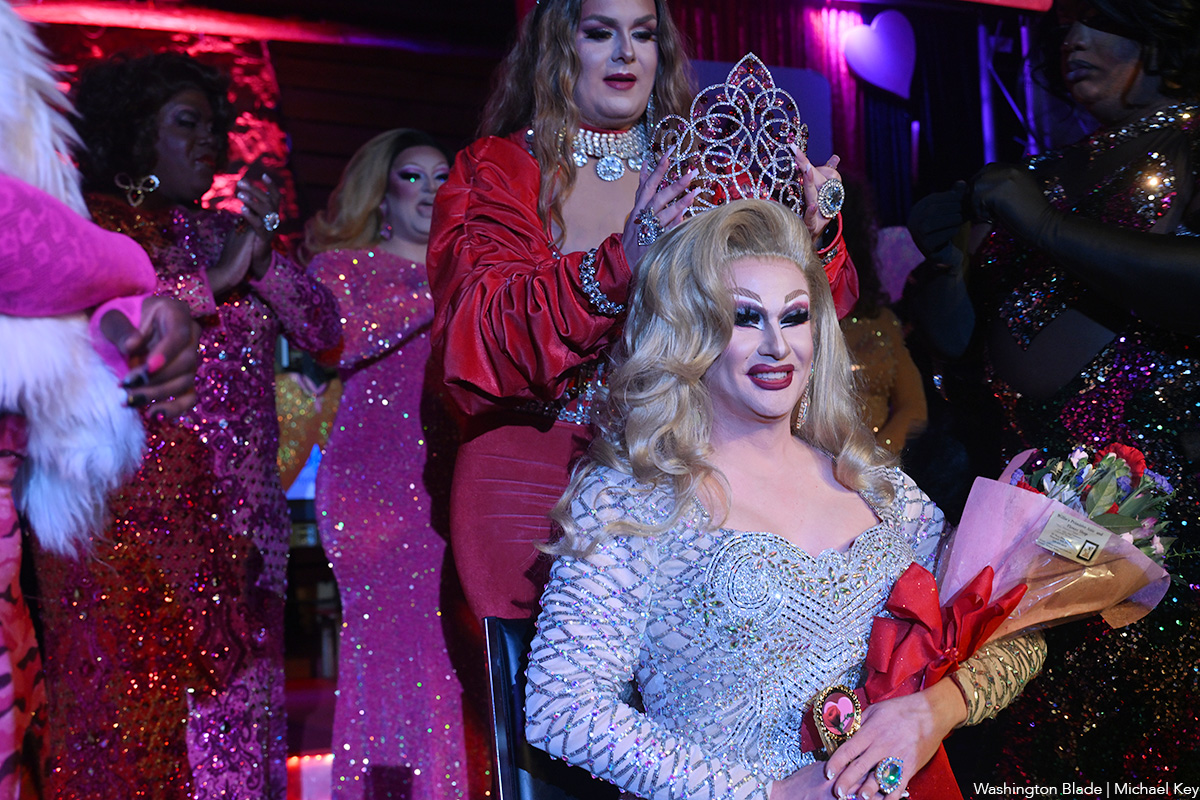
The 44th annual Queen of Hearts pageant was held at The Lodge in Boonsboro, Md. on Friday, Feb. 20. Six contestants vied for the title and Bev was crowned the winner.
(Washington Blade photos by Michael Key)
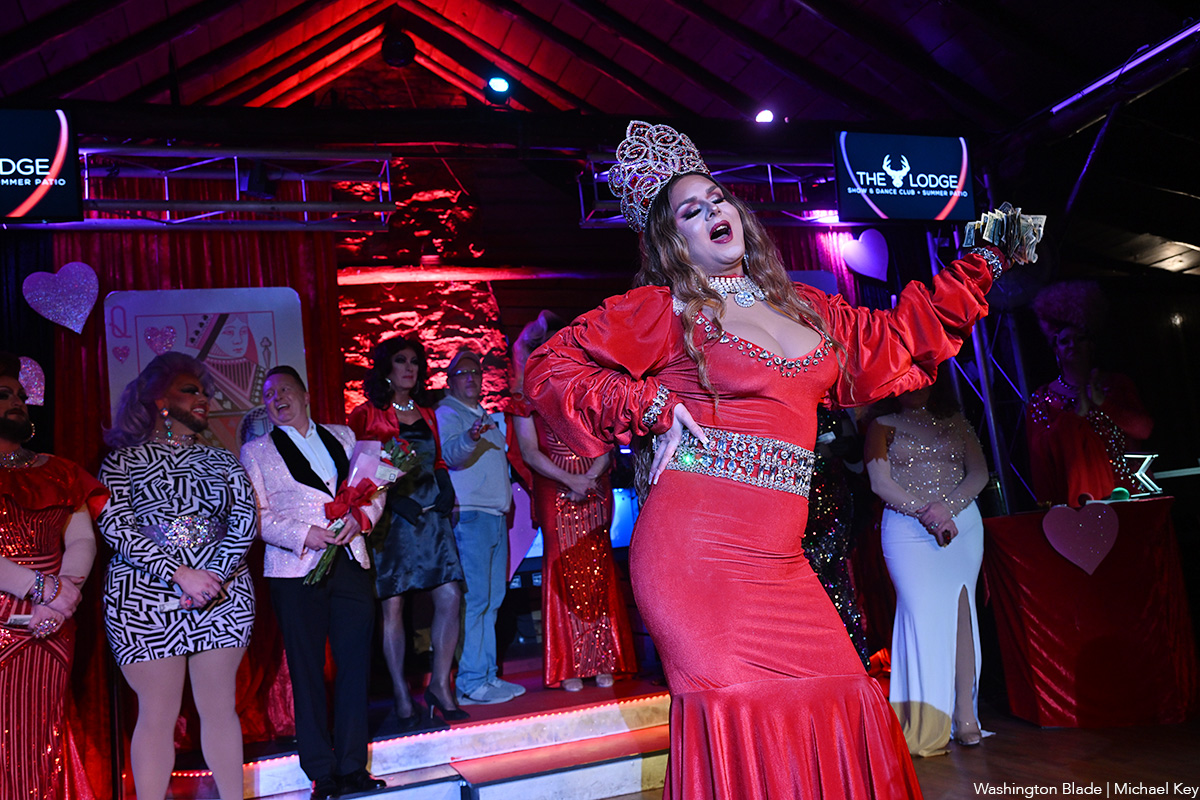
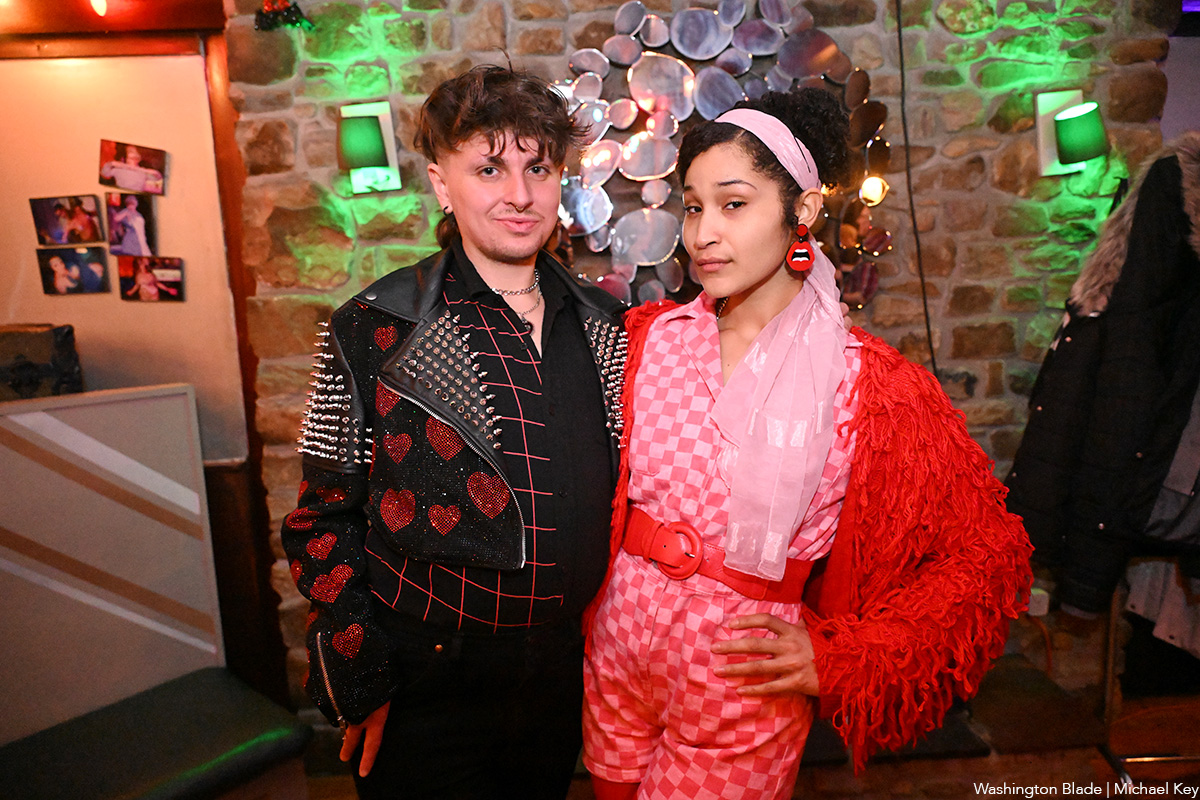
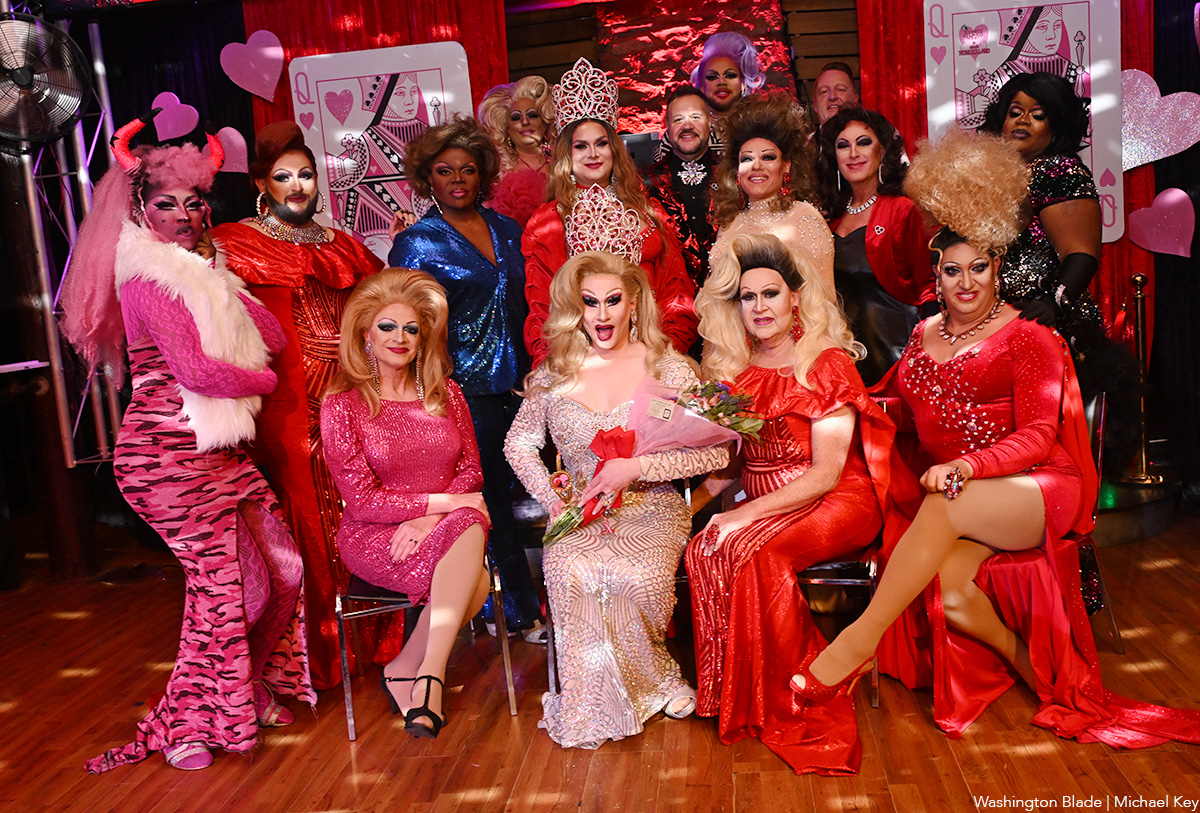
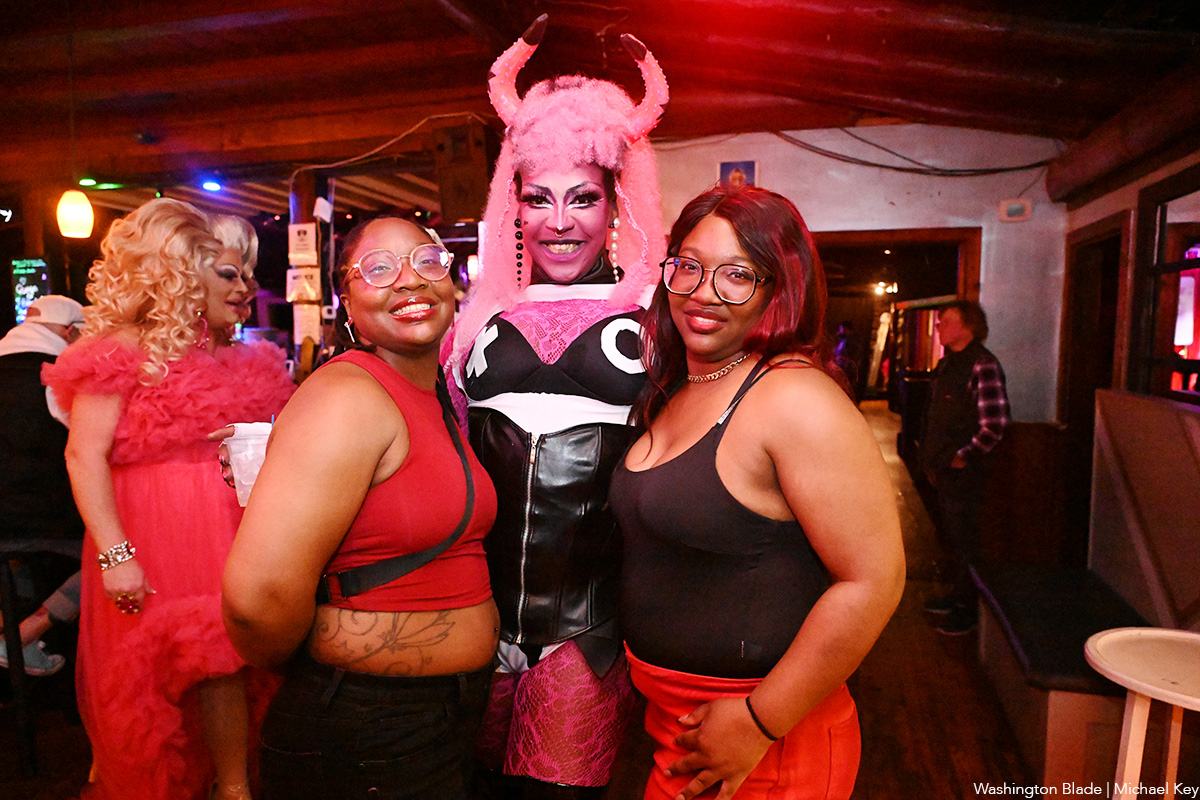
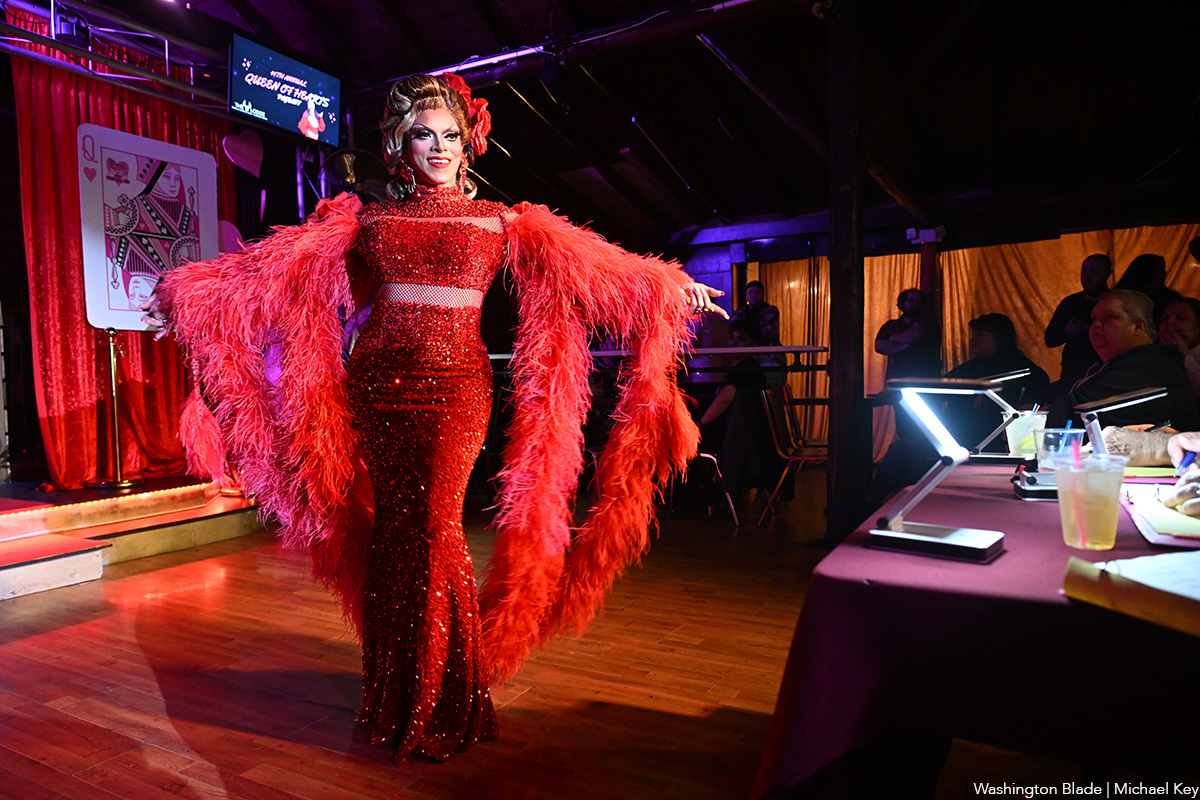
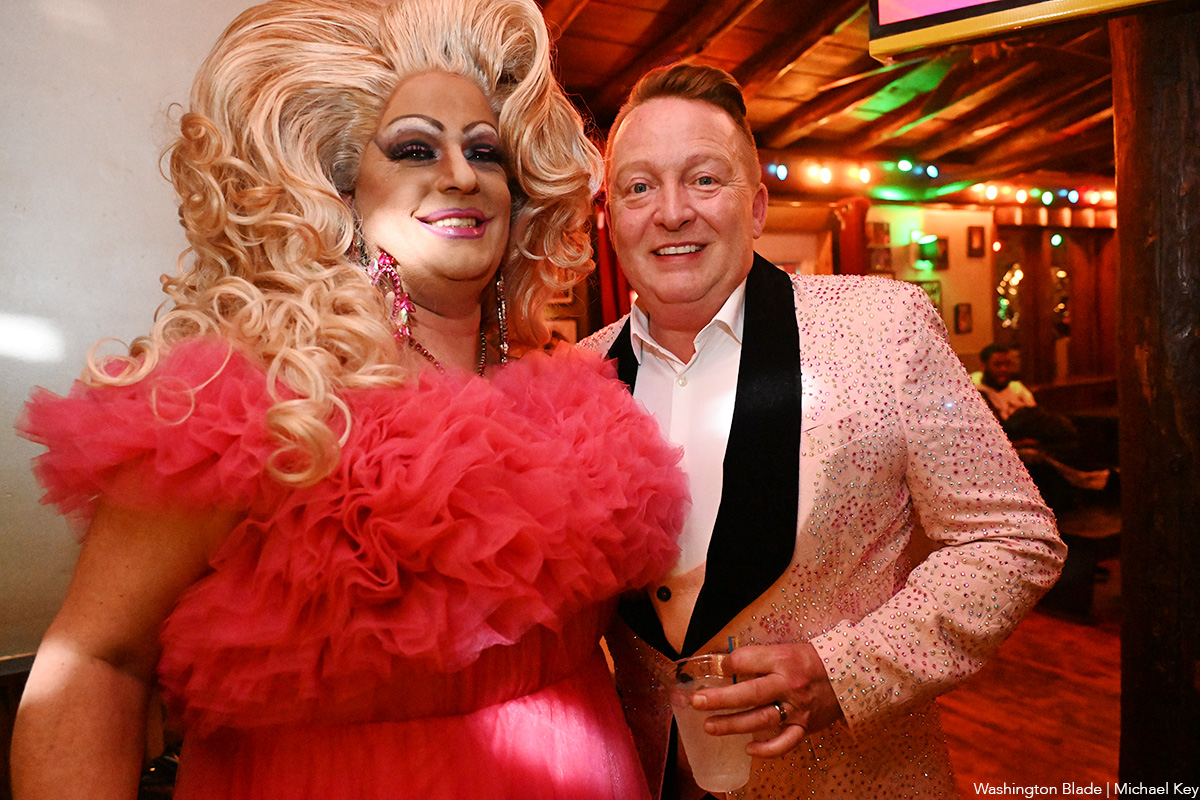
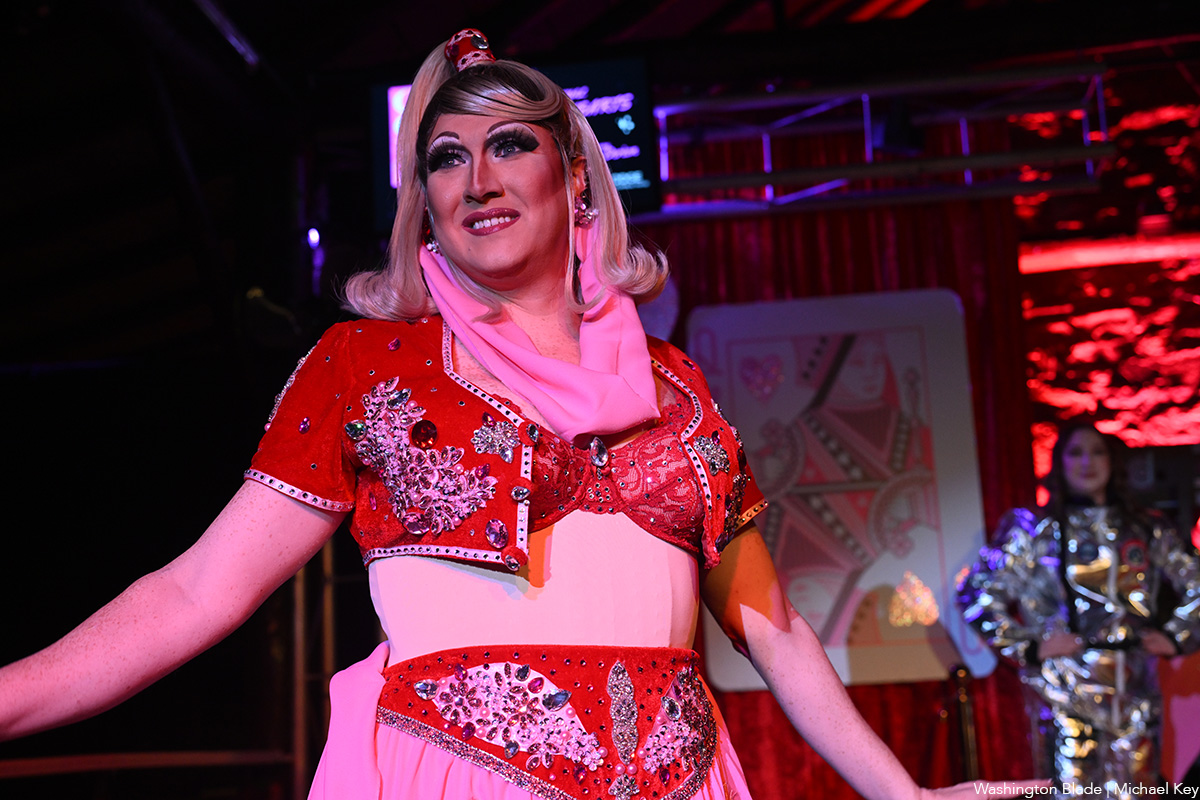

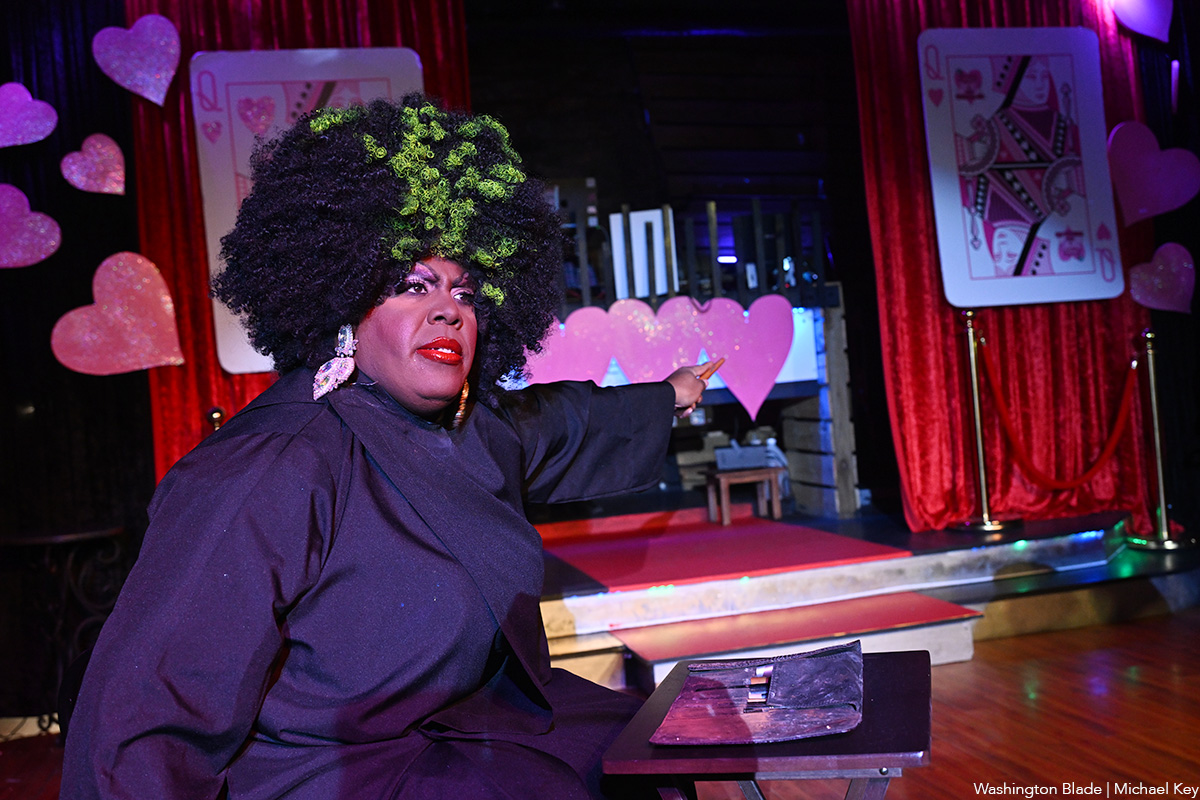
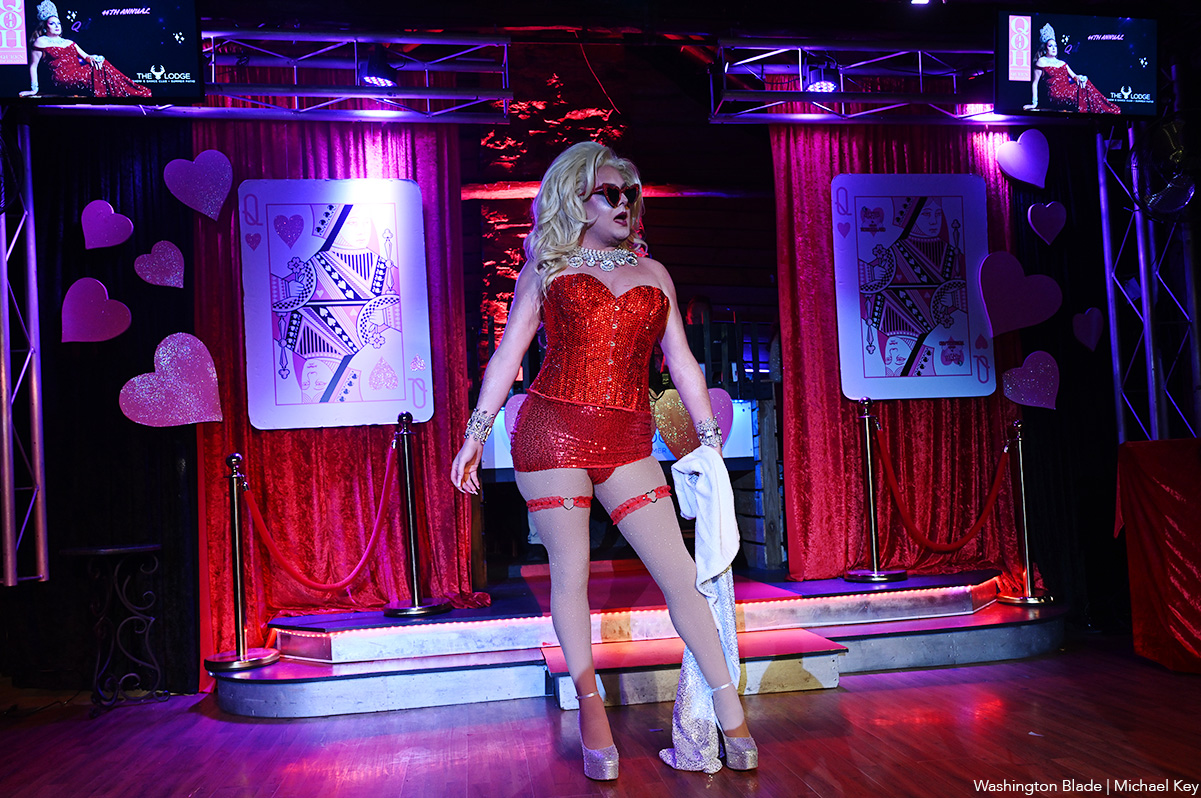
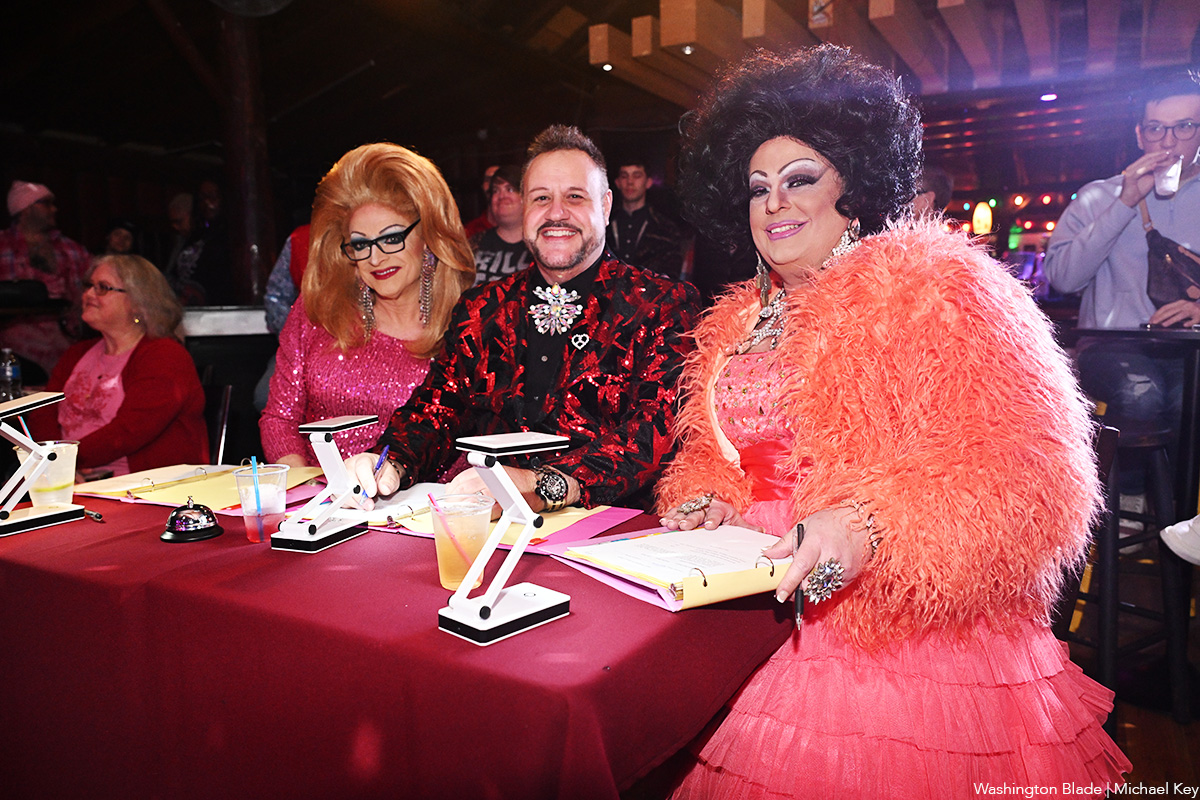
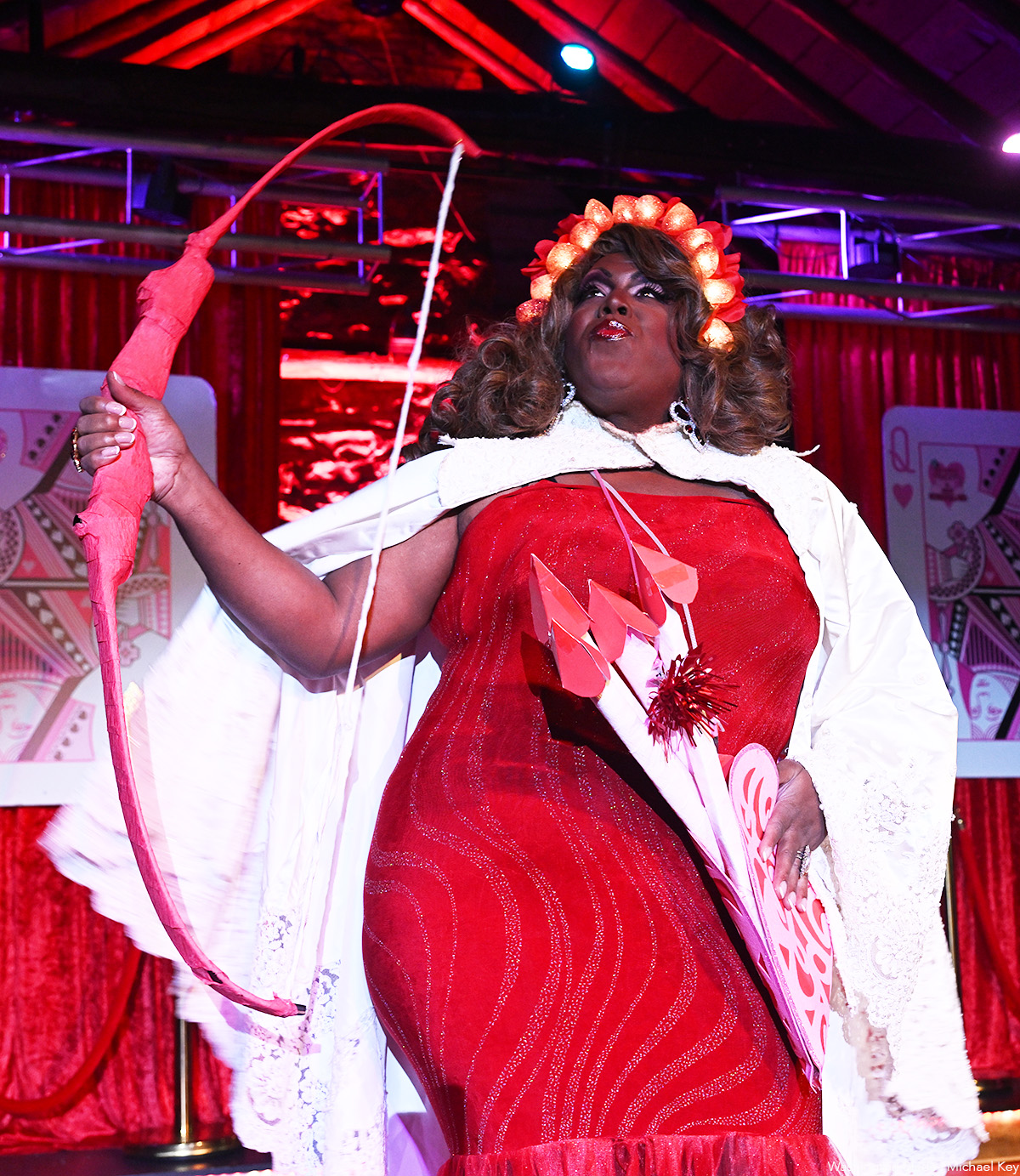
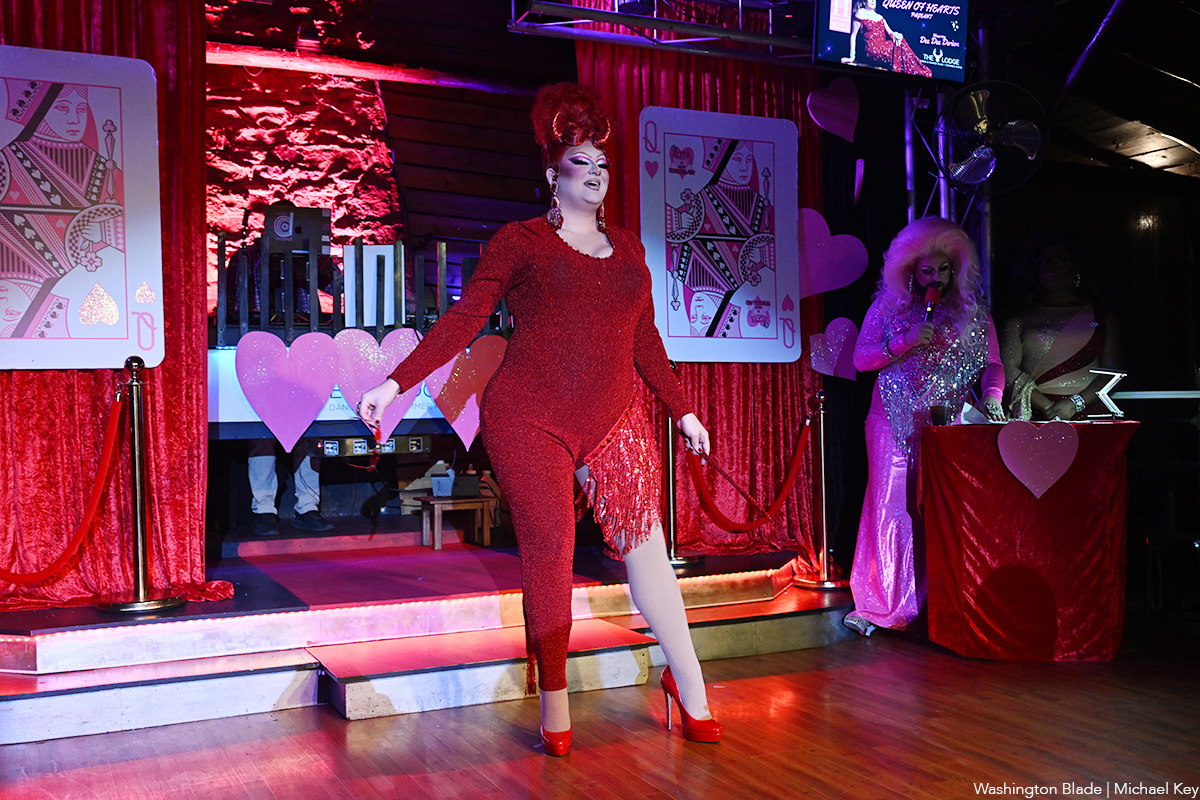

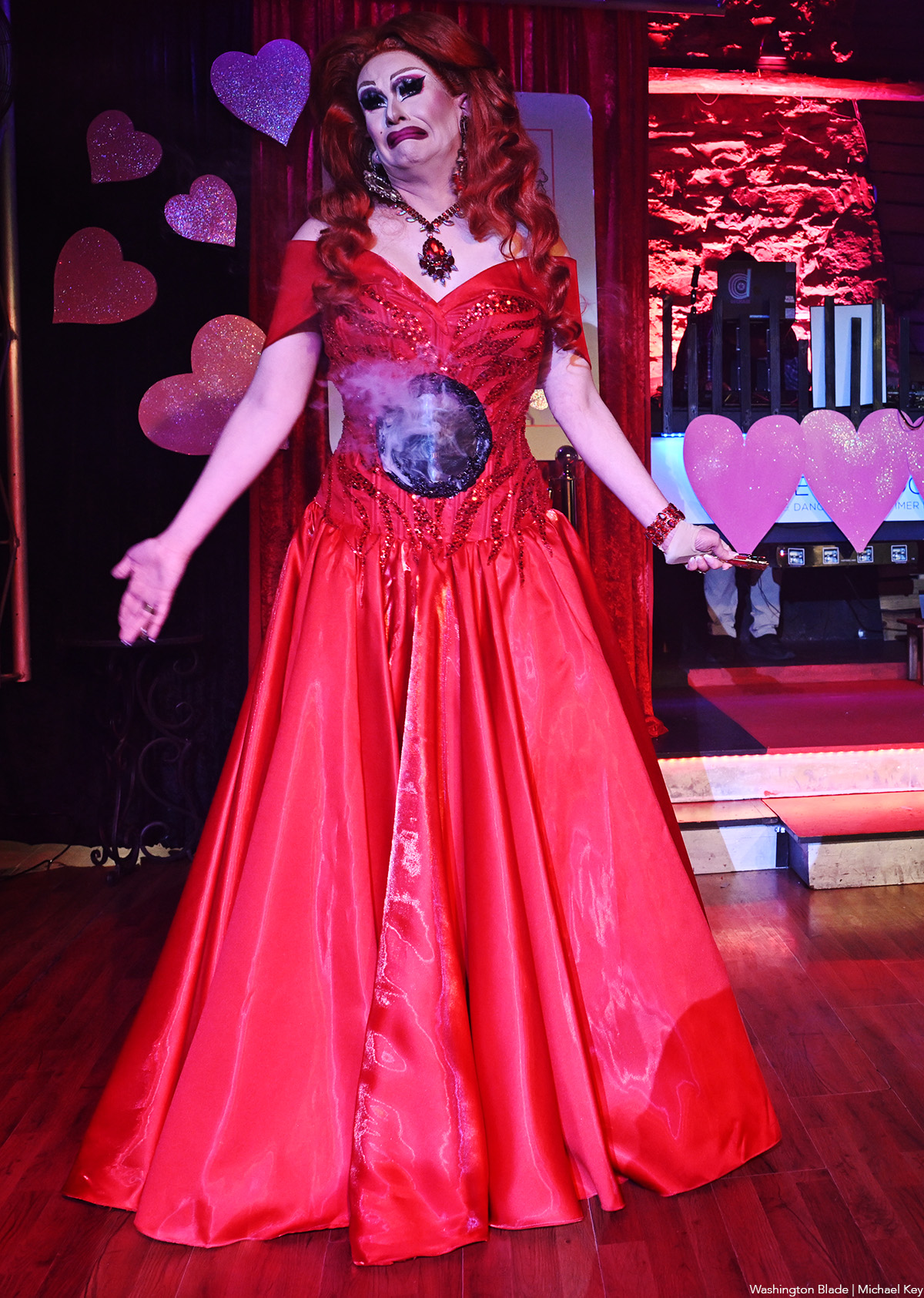
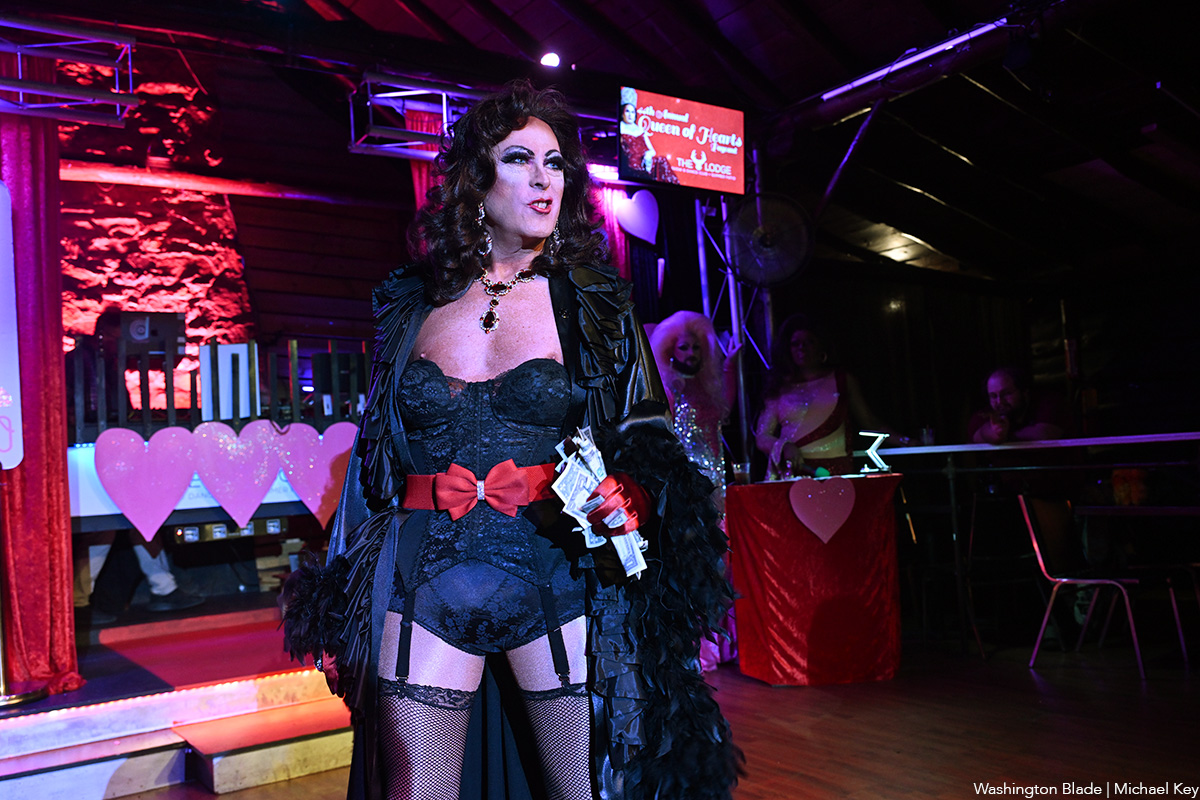
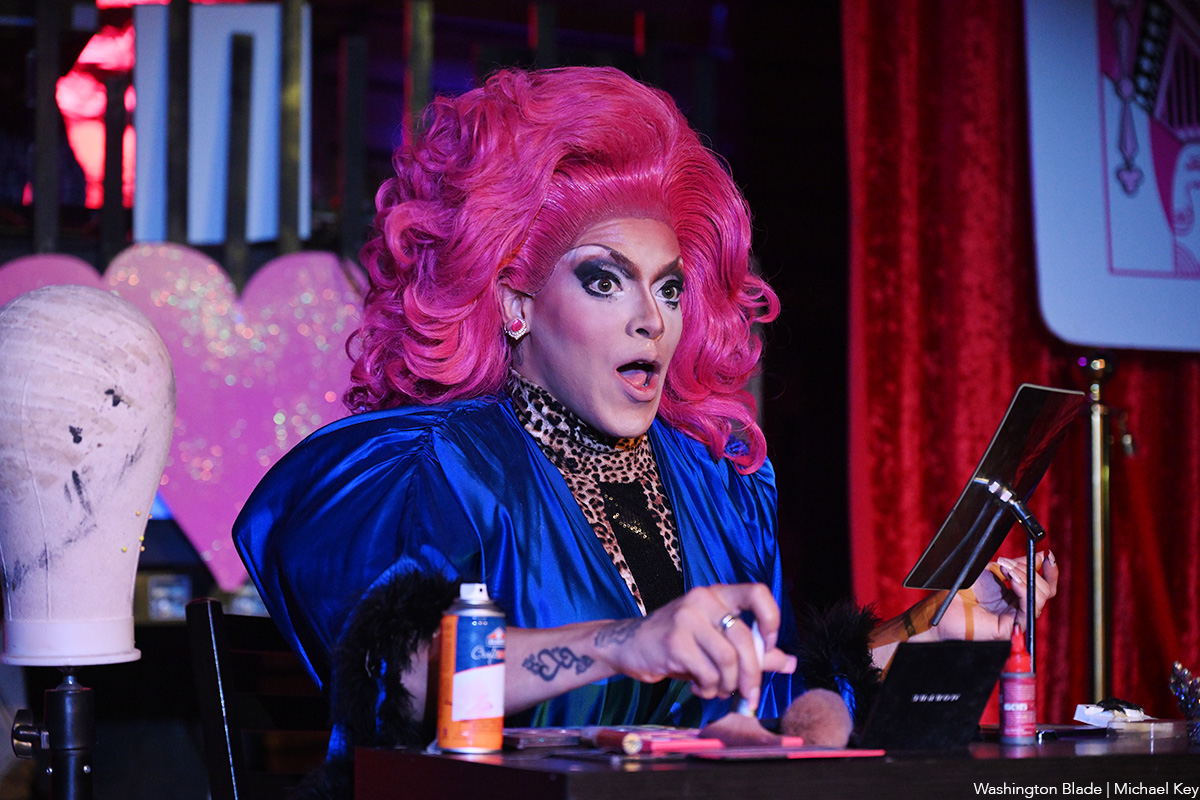
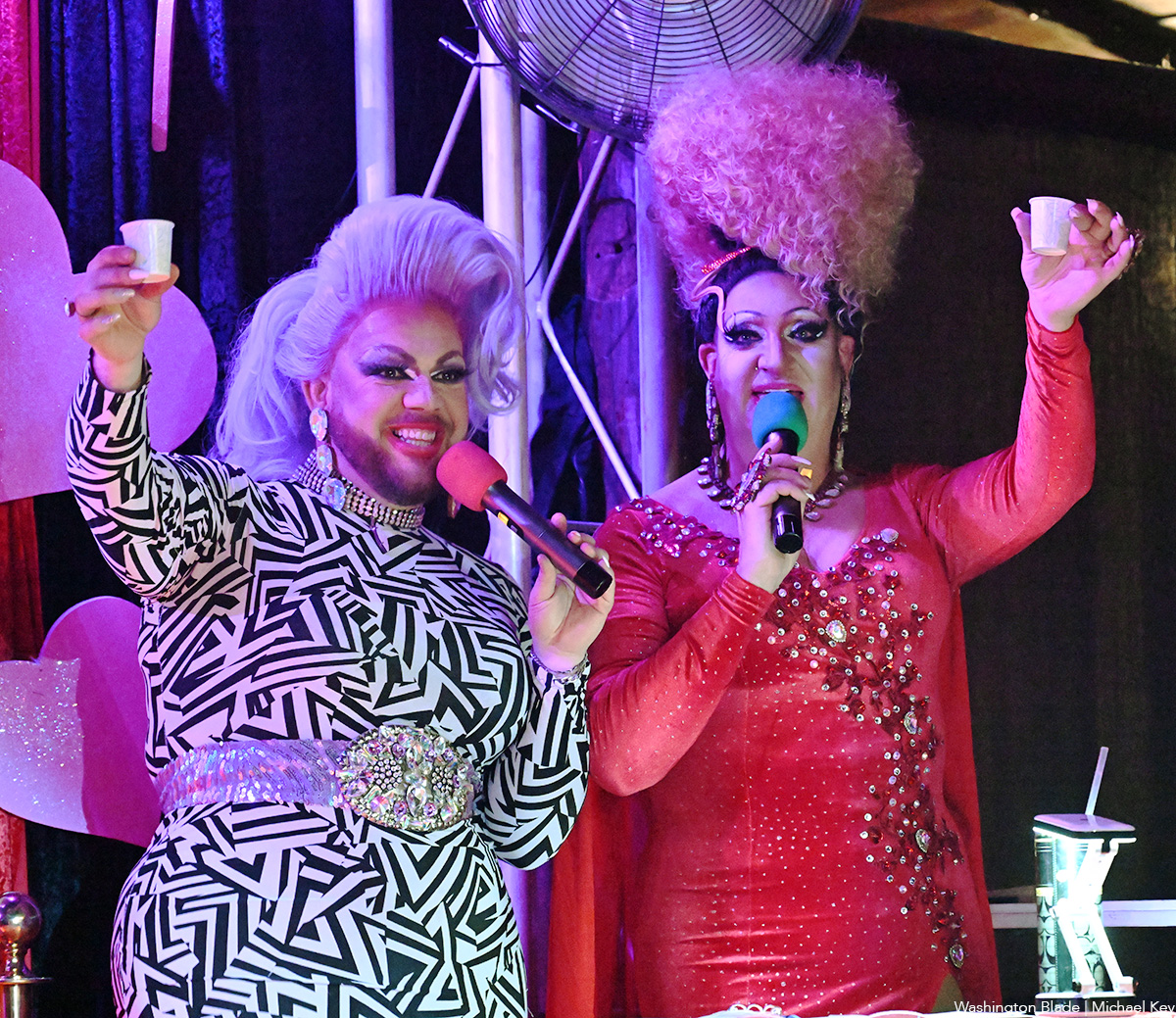


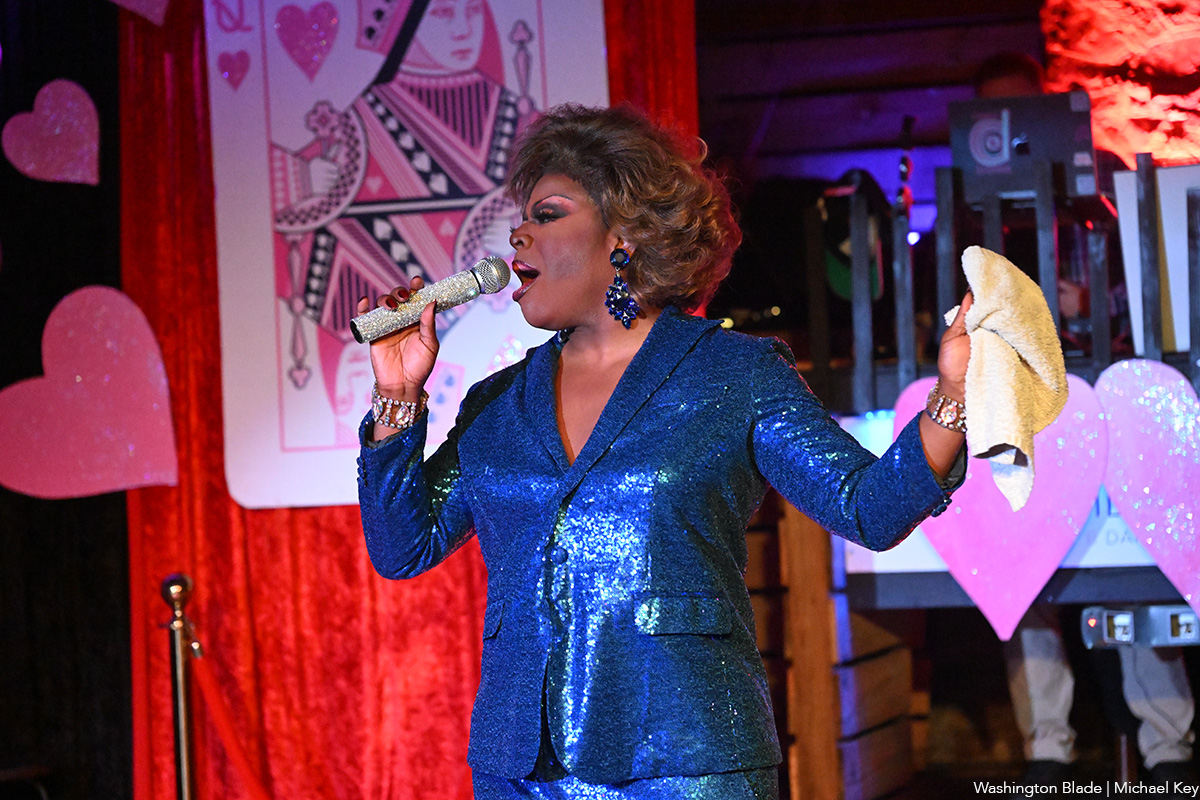
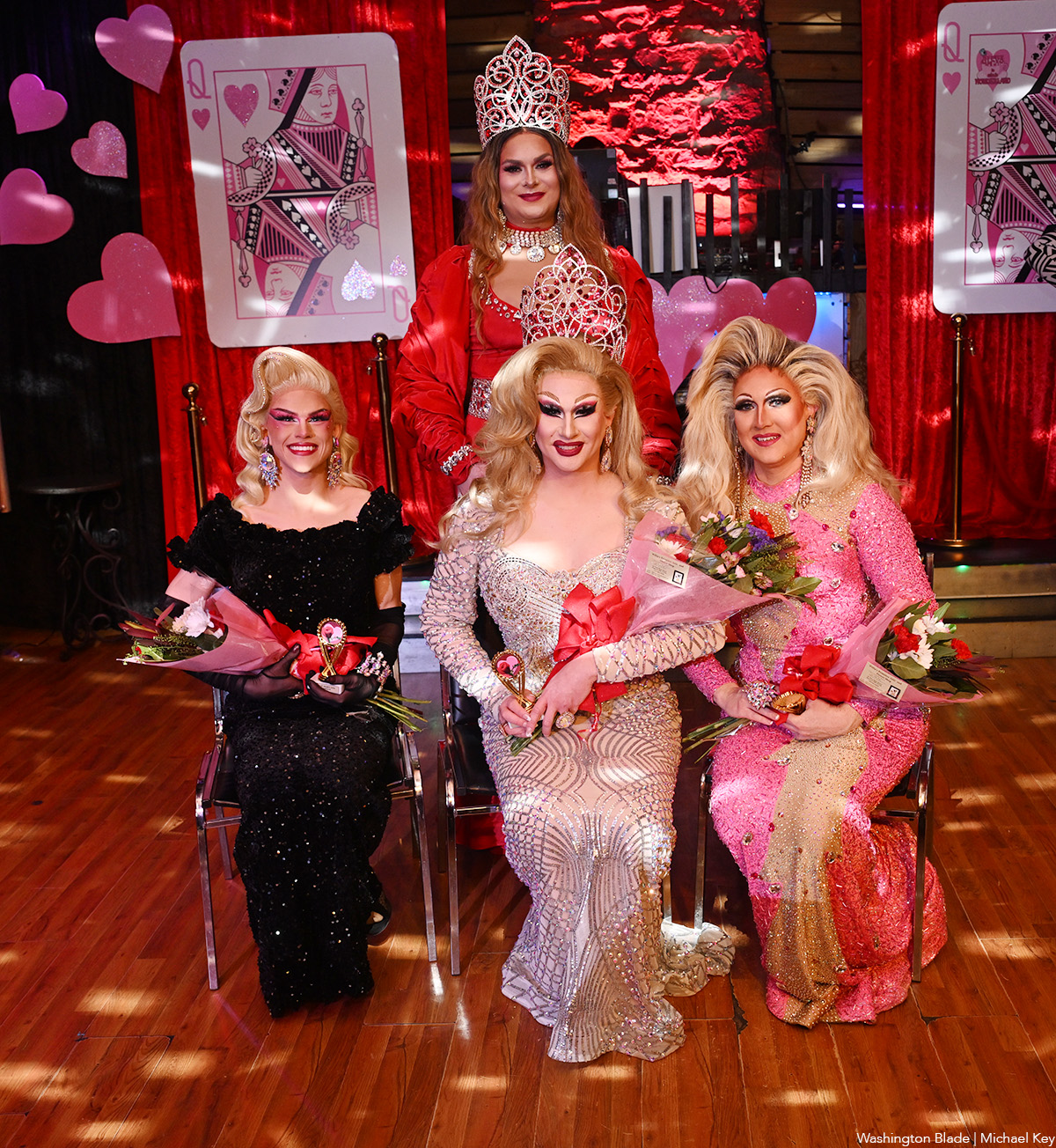
View on Threads
Books
New book profiles LGBTQ Ukrainians, documents war experiences
Tuesday marks four years since Russia attacked Ukraine

Journalist J. Lester Feder’s new book profiles LGBTQ Ukrainians and their experiences during Russia’s war against their country.
Feder for “The Queer Face of War: Portraits and Stories from Ukraine” interviewed and photographed LGBTQ Ukrainians in Kyiv, the country’s capital, and in other cities. They include Olena Hloba, the co-founder of Tergo, a support group for parents and friends of LGBTQ Ukrainians, who fled her home in the Kyiv suburb of Bucha shortly after Russia launched its war on Feb. 24, 2022.
Russian soldiers killed civilians as they withdrew from Bucha. Videos and photographs that emerged from the Kyiv suburb showed dead bodies with their hands tied behind their back and other signs of torture.

Olena Shevchenko, chair of Insight, a Ukrainian LGBTQ rights group, wrote the book’s forward.

The book also profiles Viktor Pylypenko, a gay man who the Ukrainian military assigned to the 72nd Mechanized Black Cossack Brigade after the war began. Feder writes Pylypenko’s unit “was deployed to some of the fiercest and most important battles of the war.”
“The brigade was pivotal to beating Russian forces back from Kyiv in their initial attempt to take the capital, helping them liberate territory near Kharkiv and defending the front lines in Donbas,” wrote Feder.
Pylypenko spent two years fighting “on Ukraine’s most dangerous battlefields, serving primarily as a medic.”
“At times he felt he was living in a horror movie, watching tank shells tear his fellow soldiers apart before his eyes,” wrote Feder. “He held many men as they took their final breaths. Of the roughly one hundred who entered the unit with him, only six remained when he was discharged in 2024. He didn’t leave by choice: he went home to take care of his father, who had suffered a stroke.”
Feder notes one of Pylypenko’s former commanders attacked him online when he came out. Pylypenko said another commander defended him.
Feder also profiled Diana and Oleksii Polukhin, two residents of Kherson, a port city in southern Ukraine that is near the mouth of the Dnieper River.
Ukrainian forces regained control of Kherson in November 2022, nine months after Russia occupied it.
Diana, a cigarette vender, and Polukhin told Feder that Russian forces demanded they disclose the names of other LGBTQ Ukrainians in Kherson. Russian forces also tortured Diana and Polukhin while in their custody.
Polukhim is the first LGBTQ victim of Russian persecution to report their case to Ukrainian prosecutors.

Feder, who is of Ukrainian descent, first visited Ukraine in 2013 when he wrote for BuzzFeed.
He was Outright International’s Senior Fellow for Emergency Research from 2021-2023. Feder last traveled to Ukraine in December 2024.
Feder spoke about his book at Politics and Prose at the Wharf in Southwest D.C. on Feb. 6. The Washington Blade spoke with Feder on Feb. 20.
Feder told the Blade he began to work on the book when he was at Outright International and working with humanitarian groups on how to better serve LGBTQ Ukrainians. Feder said military service requirements, a lack of access to hormone therapy and documents that accurately reflect a person’s gender identity and LGBTQ-friendly shelters are among the myriad challenges that LGBTQ Ukrainians have faced since the war began.
“All of these were components of a queer experience of war that was not well documented, and we had never seen in one place, especially with photos,” he told the Blade. “I felt really called to do that, not only because of what was happening in Ukraine, but also as a way to bring to the surface issues that we’d had seen in Iraq and Syria and Afghanistan.”

Feder also spoke with the Blade about the war’s geopolitical implications.
Russian President Vladimir Putin in 2013 signed a law that bans the “promotion of homosexuality” to minors.
The 2014 Winter Olympics took place in Sochi, a Russian resort city on the Black Sea. Russia annexed Crimea from Ukraine a few weeks after the games ended.
Russia’s anti-LGBTQ crackdown has continued over the last decade.
The Russian Supreme Court in 2023 ruled the “international LGBT movement” is an extremist organization and banned it. The Russian Justice Ministry last month designated ILGA World, a global LGBTQ and intersex rights group, as an “undesirable” organization.
Ukraine, meanwhile, has sought to align itself with Europe.
Ukrainian President Volodymyr Zelenskyy after a 2021 meeting with then-President Joe Biden at the White House said his country would continue to fight discrimination based on sexual orientation and gender identity. (Zelenskyy’s relationship with the U.S. has grown more tense since the Trump-Vance administration took office.) Zelenskyy in 2022 publicly backed civil partnerships for same-sex couples.
Then-Ukrainian Ambassador to the U.S. Oksana Markarova in 2023 applauded Kyiv Pride and other LGBTQ and intersex rights groups in her country when she spoke at a photo exhibit at Ukraine House in D.C. that highlighted LGBTQ and intersex soldiers. Then-Kyiv Pride Executive Director Lenny Emson, who Feder profiles in his book, was among those who attended the event.
“Thank you for everything you do in Kyiv, and thank you for everything that you do in order to fight the discrimination that still is somewhere in Ukraine,” said Markarova. “Not everything is perfect yet, but you know, I think we are moving in the right direction. And we together will not only fight the external enemy, but also will see equality.”
Feder in response to the Blade’s question about why he decided to write his book said he “didn’t feel” the “significance of Russia’s war against Ukraine” for LGBTQ people around the world “was fully understood.”
“This was an opportunity to tell that big story,” he said.
“The crackdown on LGBT rights inside Russia was essentially a laboratory for a strategy of attacking democratic values by attacking queer rights and it was one as Ukraine was getting closet to Europe back in 2013, 2014,” he added. “It was a strategy they were using as part of their foreign policy, and it was one they were using not only in Ukraine over the past decade, but around the world.”
Feder said Republicans are using “that same strategy to attack queer people, to attack democracy itself.”
“I felt like it was important that Americans understand that history,” he said.

More than a dozen LGBTQ athletes won medals at the Milan Cortina Winter Olympics that ended on Sunday.
Cayla Barnes, Hilary Knight, and Alex Carpenter are LGBTQ members of the U.S. women’s hockey team that won a gold medal after they defeated Canada in overtime. Knight the day before the Feb. 19 match proposed to her girlfriend, Brittany Bowe, an Olympic speed skater.
French ice dancer Guillaume Cizeron, who is gay, and his partner Laurence Fournier Beaudry won gold. American alpine skier Breezy Johnson, who is bisexual, won gold in the women’s downhill. Amber Glenn, who identifies as bisexual and pansexual, was part of the American figure skating team that won gold in the team event.
Swiss freestyle skier Mathilde Gremaud, who is in a relationship with Vali Höll, an Austrian mountain biker, won gold in women’s freeski slopestyle.
Bruce Mouat, who is the captain of the British curling team that won a silver medal, is gay. Six members of the Canadian women’s hockey team — Emily Clark, Erin Ambrose, Emerance Maschmeyer, Brianne Jenner, Laura Stacey, and Marie-Philip Poulin — that won silver are LGBTQ.
Swedish freestyle skier Sandra Naeslund, who is a lesbian, won a bronze medal in ski cross.
Belgian speed skater Tineke den Dulk, who is bisexual, was part of her country’s mixed 2000-meter relay that won bronze. Canadian ice dancer Paul Poirier, who is gay, and his partner, Piper Gilles, won bronze.
Laura Zimmermann, who is queer, is a member of the Swiss women’s hockey team that won bronze when they defeated Sweden.
Outsports.com notes all of the LGBTQ Olympians who competed at the games and who medaled.




















